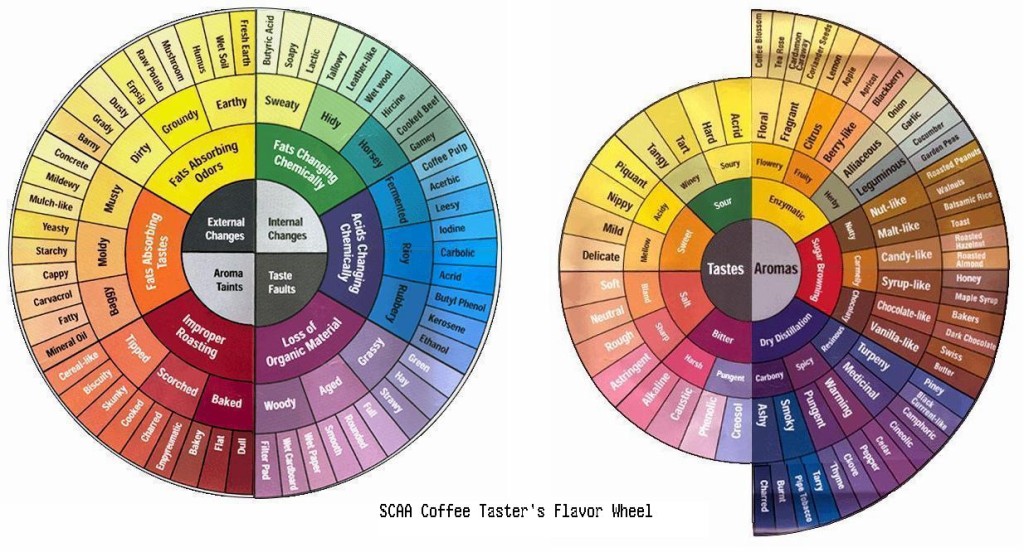If in Asian cuisine, we have to combine many ingredients to produce the five flavors of a complete dish. It is rare for any food to contain up to 4 flavors that blend like coffee beans: sour, sweet, salty, and bitter.
Sour: Coffee followed the footsteps of the French imported into Vietnam, so most of our coffee enjoyment is also in the French style, meaning that it is roasted very dark, so almost the acid content is converted to quinic so We only feel the bitter taste. And so it will be surprising to many of us to know that coffee beans are very sour, that sour taste is due to the amount of organic acids present in coffee beans such as citric, malic, lactic, pyruvic and acetic acid and in addition also greatly affected by fermentation during the processing of coffee beans. In addition, the coffee acidity is also affected by the fineness of the coffee when grinding, the more it is ground, the more acid is dissolved, the water temperature is at 94°C, the most acid is released, and the longer the time, the less sour because neutralized by alkalis in coffee.

Sweet: It is due to the amount of fructose and glucose in coffee beans, and so it is difficult for us to feel the sweetness immediately at the tip of the tongue, but instead a gentle sweetness that settles in the throat after drinking helps us feel balance the bitterness and sourness of coffee. The sweetness of the coffee increases with the roast level as the sugar content is caramelized and peaks at Full City to Full City Plus and decreases as the coffee roasts more intensely, at which point the sugar will burn and has a burning smell. Therefore, the problem is how the coffee after roasting still ensures the flavor and does not burn.
.jpg)
Salty: Mainly due to the mineral salt content in coffee beans in the form of free inorganic salts such as NaCl, KCl. Saltiness is often an undesirable taste in coffee because it will reduce the bitterness and cause a sharp taste in the throat after drinking. But in fact, some people will add less salt when they make it. We are not advocating any opinion, you can give and not give according to your taste and feelings. As for us, we will keep the inherent nature of coffee beans only.

Bitter: What if the coffee no longer tastes bitter. It's the typical taste of coffee, but the delicious bitterness is caused by organic compounds (mainly Polyphenols, Quinic acids and Hydrocolloids) rather than the burning of the roasting problem. The brewing problem also causes bitterness in coffee, which is the solubility of the alkali and the total amount of dissolved matter in the coffee. According to McCamey, coffee bitterness is influenced by the degree of roasting, the brewing time (the longer the bitter), the mineral content of the coffee, the temperature of the brewing water and the size of the ground coffee, and even the cup. Cold coffee will be more bitter than hot coffee, adding sugar, salt and acid content will reduce bitterness in coffee. In addition, the bitter taste is affected by the caffeine content and chlorogenic acid, which is why Robusta coffee is more bitter and harsh than Arabica coffee. However, the preliminary processing method does not affect the bitter taste of coffee, although it greatly affects the other taste and aroma.
Collect
